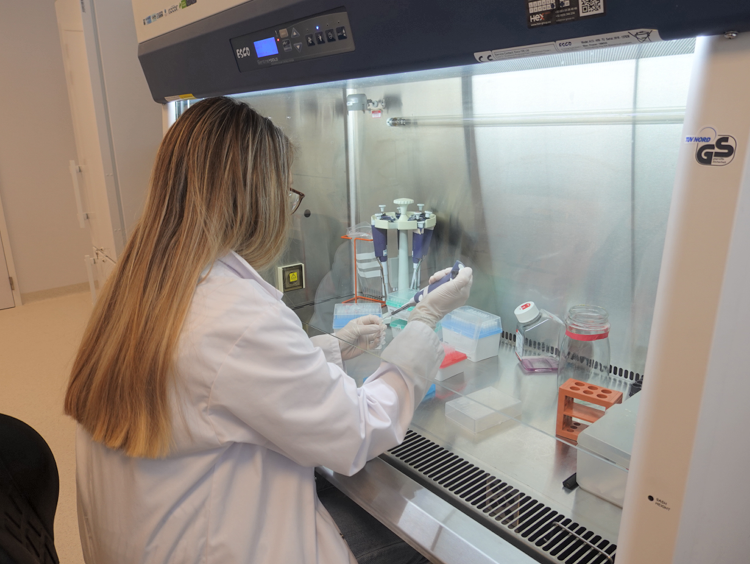Health problems
Advanced Systemic Mastocytosis (aSM)

Advanced systemic mastocytosis is a rare disease in which an excess of mast cells (a type of white blood cell) builds up in various organs, such as the bone marrow, the liver or spleen, and interferes with their functioning. This pathology can cause varied symptoms such as tiredness, abdominal pain, fever, weight loss or serious allergic reactions. Although complex, this disease responds well to the right treatment and specialised follow-up. You have come to the right place to discover the treatment options that are available
Our hospital is a reference centre for advanced systemic mastocytosis offering multidisciplinary care and treatment coordinated by experts in haematology, internal medicine and supporting care.
Treatment includes targeted therapies such as tyrosine kinase inhibitors that reduce the proliferation of mast cells. Depending on the patient’s needs, complementary treatment is available to relieve symptoms and improve the length and quality of life, such as antihistamines to control allergic reactions or bone marrow transplants for the most serious forms.
Our global approach includes regular consultations, psychological support and educational resources to help patients and their loved ones to live better with the disease.
If you have advanced systemic mastocytosis you should avoid known triggers of allergic reactions such as certain foods, medicines or insect bites. Strictly follow your medical team’s recommendations and report any unusual symptoms, such as persistent fever, severe pain or unexplained swelling. Contact emergencies immediately if you suffer a serious allergic reaction (anaphylactic shock). Our teams are available to support you and to respond to any concerns.
Our hospital’s commitment to research into advanced systemic mastocytosis enables patients to benefit from the latest innovations. Our doctors are members of international committees of experts and work with world leaders in this field, thereby guaranteeing access to the best treatment protocols.
- Dr. Adriano Salaroli (Haematology)
- Dr. Philippe Lewalle (Haematology)
- Dr. Elisa Brauns (Haematology)
- Dr. Sebastian Wittnebel (Haematology)
- Dr. Maxime Ilzkovitz (Internal medicine)
- Haematology (Jules Bordet Institute)
- Internal medicine (Jules Bordet Institute)